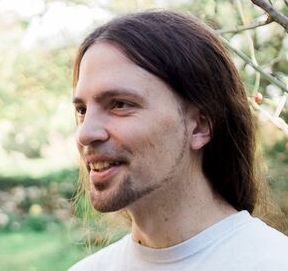Sylvain Chevallier
Full professor, LISN - Univ. Paris-Saclay

LISN
1 rue Rene Thom
91190 Gif-sur-Yvette - FRANCE
Ph: +33/01 69 15 62 85
I am full professor at LISN-CNRS, and the head of the AO team, a joint INRIA team (co-head G. Charpiat), that focuses on machine learning and stochastic optimization. I work mostly on timeseries analysis and manifold optimization. I teach at the Computer Science departement of IUT d’Orsay and in the Master AI. I follow and promote open science guidelines, including for sharing data and codes. I am the lead developer of MOABB, to push the reproducibility of research on brain-computer interfaces and to ensure a fair and open benchmarks of all machine learning pipelines on those data. I am involved in Codabench/codalab, an open source machine learning framework for organizing competition. I am in charge of the PyRiemann package, that define machine learning algorithm for processing timeseries through the Riemannian geometry of symmetric positive definite matrices. I am the author of MDLA, a framework for dictionary learning on multivariate time series. I contribute to various open source projects, such as and pymanopt, Geomstats and others.
I serve as president for Cortico, the French academic association promoting the advances in brain-computer interface. Cortico hosts a two-day conference every year: Bordeaux in 2017, Toulouse in 2018, Lille in 2019, online in 2021 and Grenoble in 2022 and Paris in 2023.
Previously, I was actively working in the handicap workgroup of Universite Paris-Saclay. We have organized the Handiversite meeting in 2016, 2018, 2021 and 2023. Specific efforts are made for promoting and teaching computer accessibility, with a mission to coordinate global policy for general accessibility and inclusion in Universite Paris-Saclay.
Past position:
- Associate Professor at LISV, in team Assistance & Interface that focuses on assistive robotics.
- Post-doc fellow in LTCI (Signal processing department, Telecom ParisTech) on Brain-Computer Interfaces in EEG
- Post-doc fellow in TAU team (INRIA Saclay - LRI funded by the ASAP ANR project on deep learning and swarm intelligence.
- ATER (french assistant professor) in ETIS lab in Neurocybernetic team on neural models of visual preattention and in Computer Science department of Universite de Cergy Pontoise
- PhD thesis on the implementation of a preattentional system with spiking neurons, in LIMSI-CNRS, under the supervision of Philippe Tarroux and Helene Paugam-Moisy.
news
| Jul 2, 2024 | The COFUND DeMythif.AI project, selected by the European Commission and led by the DATAIA Institute for the Paris-Saclay University, successfully completed the 2023 call. This funding will enable 14 new PhD to be co-financed for the start of the 2024 academic year, within 9 laboratories in 5 doctoral schools. |
| Apr 8, 2024 | The largest EEG-based Brain-Computer interfaces benchmark is now available with MOABB! You can find the preprint that provides all the details and the results page on the MOABB website. |
| Mar 20, 2024 | Codabench is the first ML framework for organizing scientific data competitions – more popular than Kaggle or Tianchi! – as reported by an independent organism. |
| Jan 9, 2024 | Following the emeritus of Michele Sebag, I serve as the co-leader of AO/TAU team. |
| Oct 25, 2023 | The MOABB 1.0 version is available! The project is now tightly integrated in BrainDecode to use deep neural net models on open EEG datasets. |
| Oct 23, 2023 | Our MANOLO project is accepted! This is a Horizon project involving 17 partners on Trustworthy Efficient AI. We are leading a task on frugal learning with growing deep neural networks. |
| Sep 15, 2023 | It is possible to submit AI-related PhD subject for the COFUND DeMythif.AI, led by DATAIA, for hiring an international PhD student. Apply here! |
| Jul 3, 2023 | The DATAIA DeMythif.AI Cofund project from Marie Sklodowska-Curie Actions is accepted! I am the leader of this MSCA European project: we aim to hire 30 PhD students in AI-related domains (uncertainty, frugality, explainability) for the whole University Paris-Saclay in 2024 and 2025. |
| May 23, 2023 | I am thrilled to announce the release of MOABB library version 0.5! Designed specifically for evaluating brain decoding models, this latest release is packed with new features and improvements, making benchmarking machine learning models easier and more effective than ever before. |
| Nov 9, 2022 | Our approach on functionnal connectivity for BCI out in IEEE Trans. BioMedEng! Called Fucone, as the old Corsican word, the code is available on GitHub, relying mostly on MOABB and Pyriemann. |